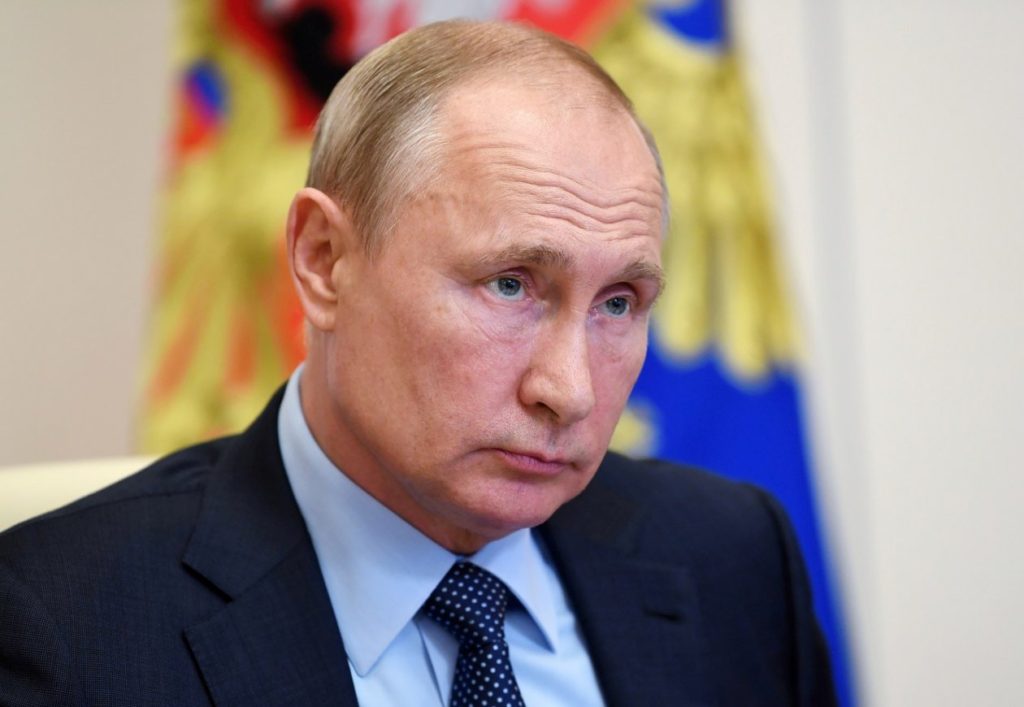
On Friday Putin offered to extend the NEW Start Treaty with no pre-conditions for one year. The Russian news agency TASS reported on Putin’s remarks:
Earlier in the day, Russian President Vladimir Putin said at a meeting with permanent members of the Russian Security Council that it would be right to extend the treaty unconditionally for at least one year “to have a possibility to hold meaningful talks on all the parameters of the problems that are regulated by such treaties.” He asked Foreign Minister Sergey Lavrov to try to receive “any clear answer” from the United States the soonest possible.
Later in the day, Trump’s national security advisor, Robert O’Brien, pooh-poohed the proposal, calling it on a non-starter. The AP reported:
Adding an edginess to the diplomatic clash, President Donald Trump’s national security adviser, Robert O’Brien, suggested the Russians rethink their stance “before a costly arms race ensues.” Administration officials have previously alluded to building up nuclear forces if the treaty is abandoned, although the Pentagon has its hands full paying for a one-for-one replacement of older nuclear weapons.
It is believed that Moscow may be biding its time until after the election when presumably Democratic candidate Joe Biden will be taking over the presidency. The Biden campaign has publicly indicated its position to renew New START while the Trump administration has been trying to strongarm the Russian government into making major concessions that would not be reciprocated.
Meanwhile, it has been revealed that the top 50 think tanks in the U.S. have received over $1 billion in funding from defense contractors and the U.S. government. Reporting by Barbara Boland at The American Conservative showed:
Donations to these think tanks came from 68 different U.S. government and defense contractor sources, under at least 600 separate donations. The top five defense contractor donors to U.S. think tanks were Northrop Grumman, Raytheon, Boeing, Lockheed Martina and Air Bus.
The Top 10 Think Tanks by Amount Received from U.S. Government and Defense Contractors
| RAND Corporation | $1,029,100,000 |
| Center for a New American Security (CNAS) | $8,956,000 |
| Atlantic Council | $8,697,000 |
| New America Foundation | $7,283,828 |
| German Marshall Fund of the United States | $6,599,999 |
| CSIS | $5,040,000 |
| Council on Foreign Relations | $2,590,000 |
| Brookings Institution | $2,485,000 |
| Heritage Foundation | $1,375,000 |
| Stimson Center | $1,343,753 |
The think tank occupying the number 3 position on the above list is the illustrious Atlantic Council – a pro-NATO think tank that sponsors such hawkish hacks like Anders Aslund as experts. In a lengthy expose, Kit Klarenberg discusses how Belarussian opposition politician Svetlana Tikhanovskaya is getting increasingly cozy with folks affiliated with the Atlantic Council:
From the moment she announced her candidacy for the Belarusian presidency after her husband Sergey was spuriously jailed for electioneering activities that would be considered normal in the rest of Europe, Tikhanovskaya has been a darling of the Western media. With her improbable ascension from stay-at-home mother to leading opposition figure, then proto-revolutionary leader-in-exile, documented on an almost daily basis.
Along the way, Tikhanovskaya has been keen to stress the upheaval in Belarus is neither pro-Western nor pro-Russian in character, but pro-democracy, a key message reiterated uncritically over and again by mainstream journalists. However, not a single one has deigned to mention, much less question, the fact that one of her key confidantes, Franak Viacorka, is a ‘non-resident fellow’ at Atlantic Council, a think tank that aggressively propagandizes in support of NATO, and wider American financial, political, military and ideological interests in Europe and beyond.
This position isn’t mentioned in his Twitter bio, and it’s unclear precisely when he became Tikhanovskaya’s ‘international relations advisor.’ Viacorka’s Atlantic Council appointment was announced on August 15 – in a Washington Post op-ed published the same day, he and Melinda Haring, deputy director of the council’s Eurasia Center, painted a glowing, provocative portrait of the would-be president of Belarus, framing her as part of a wider feminist uprising against the country’s “deeply patriarchal” elite, an upheaval central to the radical shakeup of the country.
The council billed Viacorka as a “journalist from Belarus,” which is true, to an extent. A long-time anti-Lukashenko activist, his campaigning as a teenager in the run-up to the 2006 presidential election was even the subject of an award-winning documentary. Subsequently, he spent seven years at US government-controlled media outlets Radio FreeEurope and Radio Liberty, before moving to Washington DC in August 2018 to serve as Digital Media Strategist for the US Agency for Radio Free Europe’s parent company US Agency for Global Media (USAGM), a role which ended just before he joined the Atlantic Council. In August 2018, USAGM’s then-CEO acknowledged its media outlets’ “global priorities reflect US national security interests.”
Founded in 1961, the council is best understood as NATO’s intellectual wing-cum-propaganda arm. Just as the alliance’s paradoxical purpose is, in the phrase of academic Richard Sakwa, “to manage the security risks created by its existence,” so too the organization exists to promote the notion of a Russian threat, in order to justify NATO’s post-Cold War endurance.
In this sense, the Atlantic Council is no different from most other ‘think tanks’ in that its raison d’etre is to defend and further the concerns of its financiers – in pursuit of that goal, as with most other lobby groups of this nature, it often publishes highly dubious, biased ‘research’ under the guise of objective academic inquiry, and recruits to its ranks individuals who advance its objectives in some way, promoting these as ‘independent experts.’
Read the full article here.